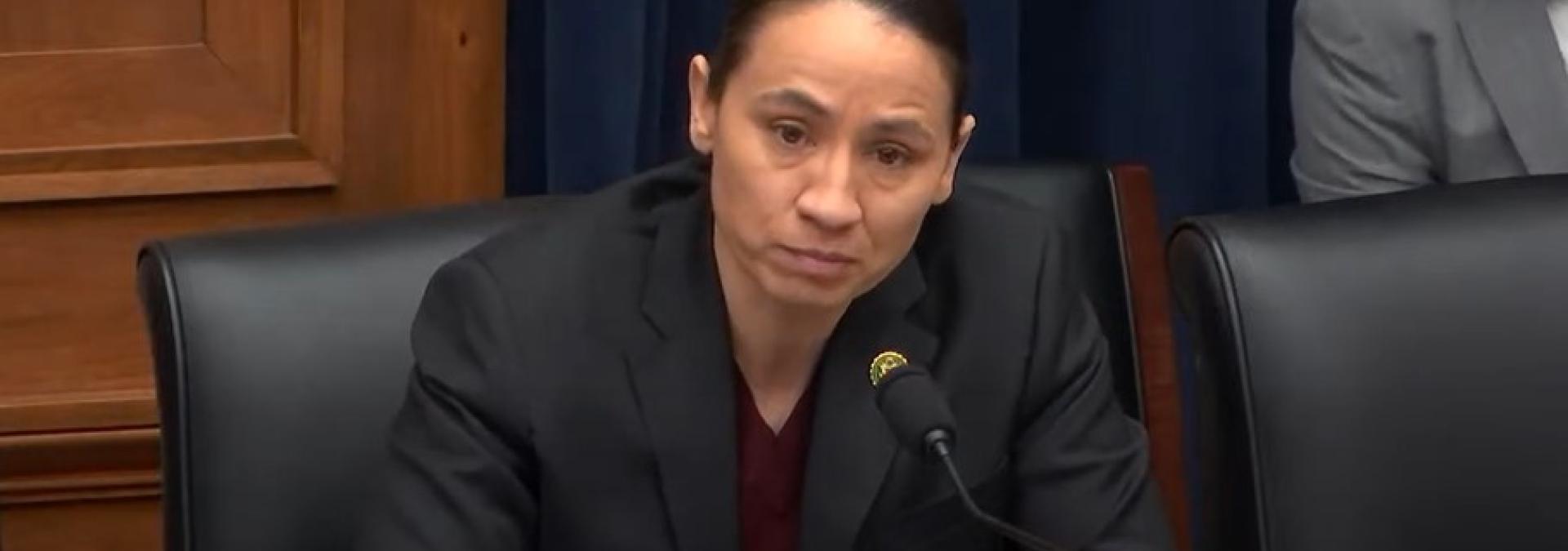WATCH: Davids Presses Aviation Experts on Air Traffic Controller Shortages, Safety Investments Following Air-Collision

During this week’s U.S. House Transportation & Infrastructure (T&I) Aviation Subcommittee hearing, “America Builds: Air Traffic Control System Infrastructure and Staffing,” Representative Sharice Davids emphasized the urgent need to invest in air traffic control staffing and safety infrastructure following a recent air collision involving PAT 25 and Flight 5342, which originated from Wichita, Kansas.
“Millions of passengers are able to board, fly, and disembark flights in the U.S. every year thanks to the scores of hardworking personnel across our country and the most advanced technology in the world,” said Davids. “But… [their] safety isn’t free. From fully implementing NextGen and upgrading our air traffic control systems to training and retaining folks like aviation safety professionals and air traffic controllers, we must continue to invest the time and resources to ensure we are protecting the flying public.”
WATCH: Davids questions aviation experts during U.S. House T&I Hearing
The Federal Aviation Administration (FAA) currently employs fewer than 11,000 fully certified controllers — far below recommended staffing levels — forcing many to work overtime in high-pressure environments. Delays in hiring and training exacerbate these shortages, making it more difficult to maintain the world-class safety standards the U.S. aviation system is known for. During the hearing, Davids underscored how ongoing workforce shortages and outdated technology could put passengers at risk.
Last month, Davids condemned the President’s decision to fire hundreds of FAA employees and urged U.S. Department of Transportation Secretary Sean Duffy to immediately implement key aviation safety reforms included in the bipartisan FAA Reauthorization, which Congress passed last year. That includes hiring more air traffic controllers and updating aging air traffic control technology and systems. Davids also called out the conflict of interest created by Elon Musk’s suggestion that the FAA should cancel a $2.4 billion contract with Verizon in favor of his Starlink.
Following the tragic collision, Davids and her Kansas colleagues expressed their steadfast solidarity with the families and communities affected by the tragedy. The entire Kansas congressional delegation also released a joint statement in response to the devastating incident. The National Transportation Safety Board (NTSB) is currently investigating the incident, and based on its findings, Davids and her colleagues on the House Transportation & Infrastructure Committee’s Aviation Subcommittee will take the necessary legislative measures to prevent this type of tragedy from happening again.
During a T&I hearing last year, Davids pressed former FAA Administrator Michael Whitaker, who served under President Biden, on the slow pace of modernizing critical landing systems used by air traffic controllers. She highlighted that in Kansas, 81 percent of these systems are functionally obsolete, and at the FAA’s current rate of replacement, it would take over a century to upgrade them. Davids emphasized the urgent need for faster upgrades to ensure the safety of Kansans.